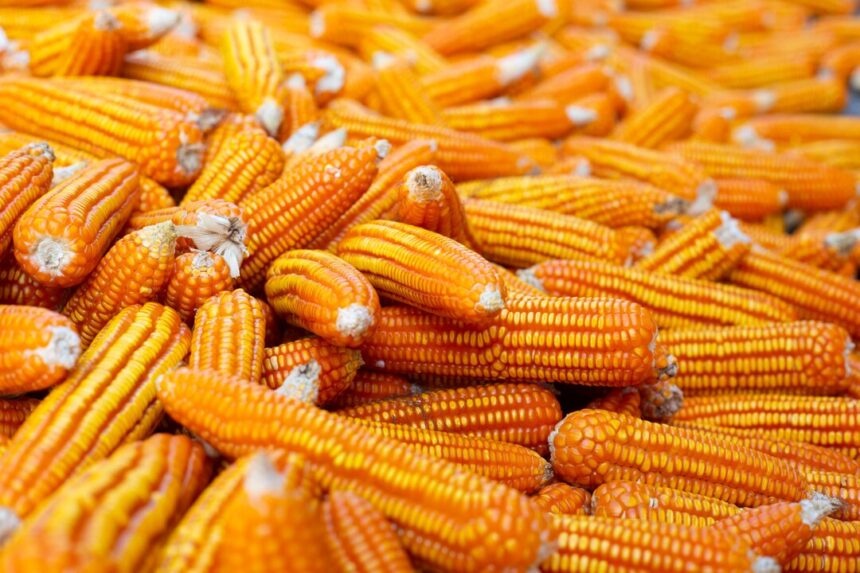Maize, also known as corn, holds a vital position in South Africa’s agricultural landscape, serving as a staple food crop and a significant contributor to the country’s economy. With growing demand for maize both domestically and internationally, maximizing the quality and yield of maize crops is crucial for ensuring food security and economic prosperity. Here are some techniques for enhancing quality and yield in maize production in South Africa:
1. Soil Preparation and Management:
- Begin with proper soil preparation, including soil testing to determine nutrient levels and pH balance. Amend the soil as needed with organic matter and fertilizers to optimize nutrient availability for maize plants.
- Implement effective soil management practices, such as crop rotation, conservation tillage, and cover cropping, to maintain soil health, minimize erosion, and enhance water retention.
2. Variety Selection:
- Choose maize varieties that are well-suited to the local climate, soil conditions, and pest pressures. Consider factors such as yield potential, disease resistance, and maturity length when selecting maize varieties for planting.
- Experiment with hybrid maize varieties that have been specifically bred for high yield and quality traits, such as drought tolerance, pest resistance, and improved nutritional content.
3. Planting Techniques:
- Optimize planting density and spacing to maximize maize yield potential while avoiding overcrowding and competition for resources. Follow recommended planting depths and spacing guidelines based on the selected maize variety and local growing conditions.
- Consider precision planting techniques, such as seed singulation and row spacing adjustments, to ensure uniform plant emergence and spacing, leading to more consistent yields across the field.
4. Irrigation Management:
- Implement efficient irrigation practices to ensure adequate moisture levels throughout the growing season, especially during critical growth stages such as germination, flowering, and grain fill.
- Consider drip irrigation, pivot irrigation, or other modern irrigation technologies to deliver water directly to the root zone while minimizing water waste and evaporation.
5. Pest and Disease Management:
- Implement integrated pest management (IPM) strategies to control pests and diseases effectively while minimizing reliance on chemical pesticides. Monitor maize fields regularly for signs of pest infestation or disease outbreaks and take timely action to address them.
- Utilize pest-resistant maize varieties, biological control agents, cultural practices, and crop rotation to reduce pest and disease pressure and protect maize yield and quality.
6. Fertilization and Nutrient Management:
- Develop a targeted fertilization plan based on soil test results, maize nutrient requirements, and crop stage. Apply fertilizers in appropriate amounts and at the right times to optimize nutrient uptake, plant growth, and yield.
- Consider using precision agriculture technologies, such as variable rate application and nutrient mapping, to tailor fertilizer applications to the specific needs of maize plants and maximize resource efficiency.
7. Weed Control:
- Implement effective weed control measures to minimize competition for nutrients, water, and sunlight and prevent yield losses in maize crops. Utilize herbicides, mechanical cultivation, and mulching techniques to manage weed populations while minimizing soil disturbance and erosion.
8. Timely Harvesting and Post-Harvest Management:
- Harvest maize crops at the optimal stage of maturity to ensure maximum yield and quality. Monitor maize moisture levels closely to determine the ideal harvest time and minimize losses due to shattering or spoilage.
- Implement proper post-harvest handling and storage practices to preserve maize quality and minimize losses from pests, moisture, and spoilage. Utilize drying, cleaning, and storage facilities equipped with appropriate ventilation and temperature control to maintain maize quality over time.
By implementing these techniques for enhancing quality and yield in maize production, farmers in South Africa can optimize their maize crops’ performance, resilience, and profitability. Through a combination of sound agronomic practices, modern technologies, and strategic management approaches, maize producers can contribute to meeting the growing demand for maize while ensuring sustainable agricultural practices for future generations.
Join 'Farmers Mag' WhatsApp Channel
Get the latest Farming news and tips delivered straight to your WhatsApp
CLICK HERE TO JOIN






